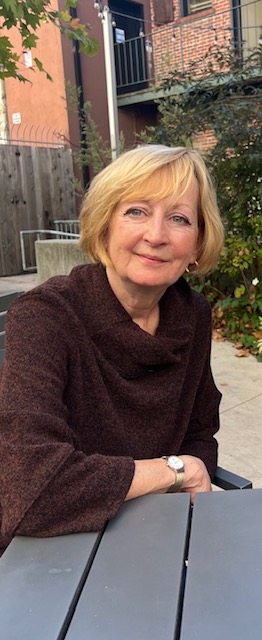Animated by legends, sieges, religious conflicts, and magnificent vistas, the Antrim Coast in Northern Ireland belonged, until 1609, to an ancient kingdom known as Ulster. That year the Kingdom ended. Gaelic chieftains forfeited half a million acres to the English, who settled Scottish colonists on the land. Those raiders and planters, whose borderlands and farms the English had poached, tried to make a home there. But three generations on, more than one-hundred thousand of these Ulster Scots began emigrating to America, pushing south along the Appalachian Mountains. By the 1780s they had reached North Carolina and East Tennessee.
Reversing their route in the fall of 2016, I traveled from my cabin near the Smokies to the land of my ancestors. My visit occurred soon after the close and contentious Brexit vote, which initiated the United Kingdom’s departure from the European Union. Because Northern Ireland is a province of the U.K., residents feared that Brexit would close the international border between their land and the independent Republic of Ireland—a border opened after thirty years of sectarian violence by the 1998 Good Friday Agreement. Citizens of the Republic, which belongs to the E.U., were serene. But for the British province, Brexit threatened economic hardship, and the people I met were tense and anxious.
All week long, hiking with a group of Americans along the Antrim Coast, I felt troubled by the burden of conflict here and at home. My tour was a flight from the divisive U.S. presidential campaign. After long hours on steep trails, I fretted over media reports about political rhetoric splitting my country in two. By the end of the week, heading toward the geologic marvel known as the Giant’s Causeway, my heart ached as much as my feet.
From a clifftop trail our group glimpsed one of the rock formations rising from the beach: the Organ, a lofty wall of organ-pipe columns, gleaming ingots in the mid-day sun. Tiny figures clambered over it like fluorescent-clad putti on a baroque instrument. A steep, wooden staircase plummeted from our trail to a pathway that wound across a blue-green ridge. After descending we followed the path, waves shushing the beach to our right.
On this shore, sixty million years ago, volcanic rock spewed, lava flowed, and basalt cooled into 40,000 interlocking, polygonal-shaped columns. When the Ice Age ended, about 15,000 years ago, sea water sculpted those columns into stepped cliffs. Irish folklore put a superhuman face on the epic metamorphosis of this coast. The legend claimed that the king-size warrior Finn MacCool hewed a land bridge across the North Channel to fight the Scottish giant Benandonner.
On this clear, gusty afternoon, no folk heroes appeared. I followed women in hijabs, men in Rugby team colors, Indian nuns, and Goth teens to the left of the Organ. One by one, we ducked beneath a narrow archway through the rock to join the crowds on the other side. In pre-pandemic years like 2016, the natural phenomenon attracted 300,000 people from diverse nations. Children shrieked, chased by the surf. Couples selfie-grinned. Long-distance travelers basked in the luck of a luminous day. The Causeway’s shapes suggested whimsical names, and the sight of tourists straddling the Giant’s Boot and clambering over the stone Camel elated me.
The place felt like a gathering of meaning, histories, the spoken and unspoken that reach backward and forward in time, both abiding and vital. Bonded by harmony, we could not anticipate the litany of horrors that lay ahead: harsher political divisions, a global pandemic, intensifying climate change, police brutality, the invasion of Congress, Russia’s war on Ukraine—so many. We could not foretell our individual losses either. For me, three years hence, loomed the dying of my spouse, selling our cabin, and moving to the city of Knoxville, where I write these words. If my fate, brooding on the horizon, had revealed itself, would I have walked straight into the sea or loved more passionately?
As if that hour in 2016 knew the future was unbearable, it held me, held the yet-to-come out of sight, held all of us in time’s flow. On the breeze snatches of Japanese, German, Hindi, Italian snapped like prayer flags hung on an invisible thread of laughter. That a capella mash-up of pitches, melodies, and rhythms made music of what unites us as a species. I heard the imagination of every person tuning into the vibration of joy—the fundamental emotion that tells us this is where we belong.


